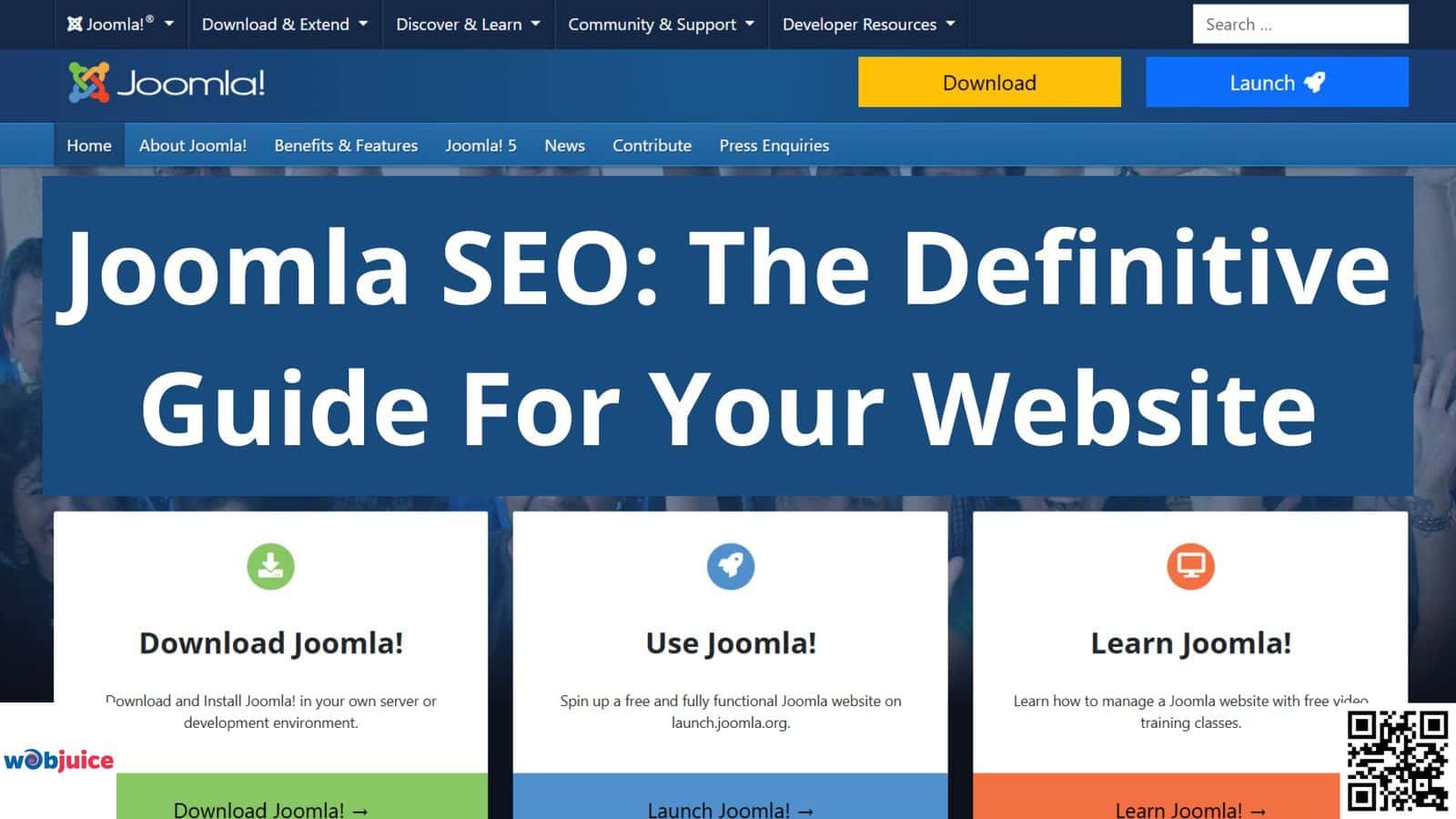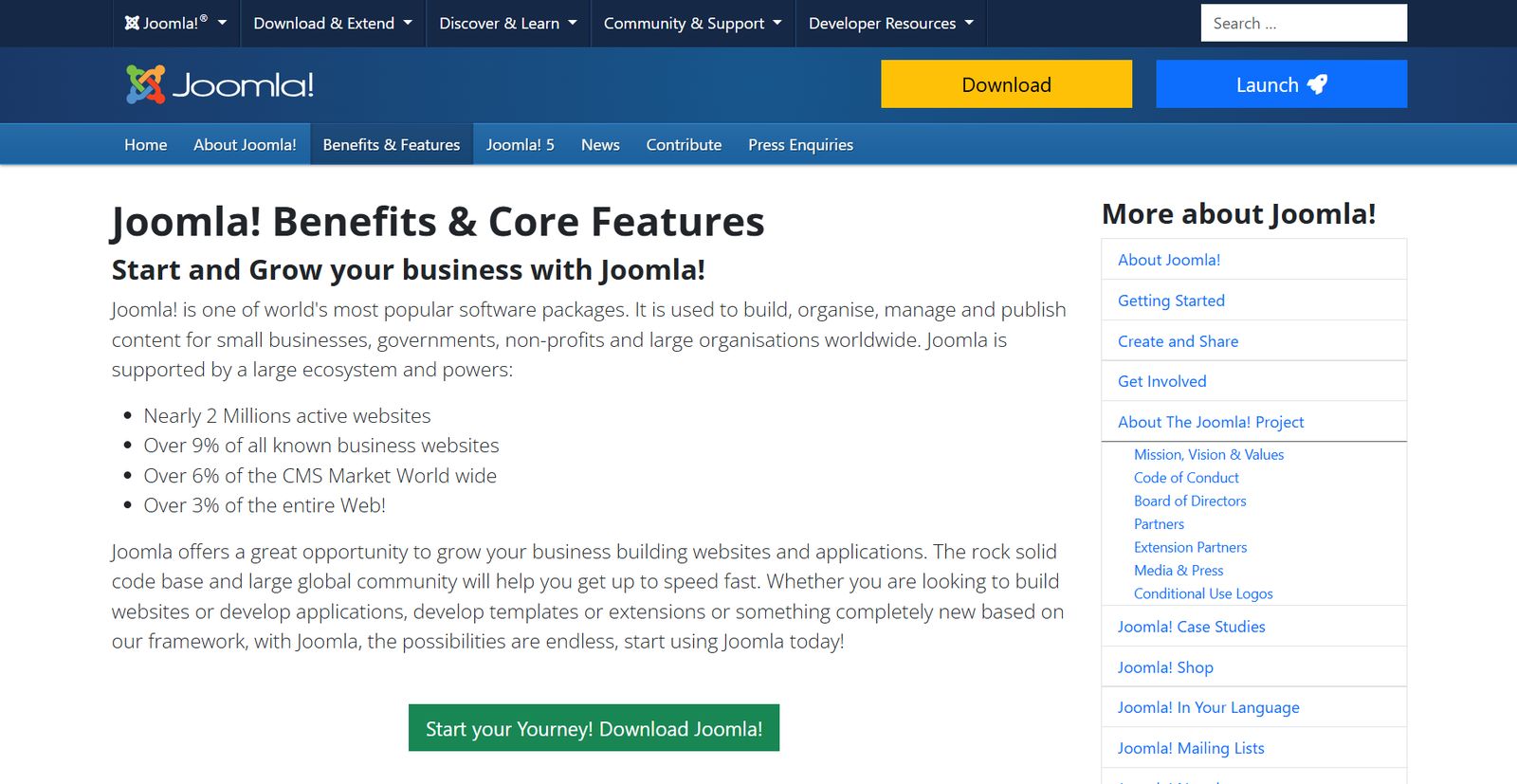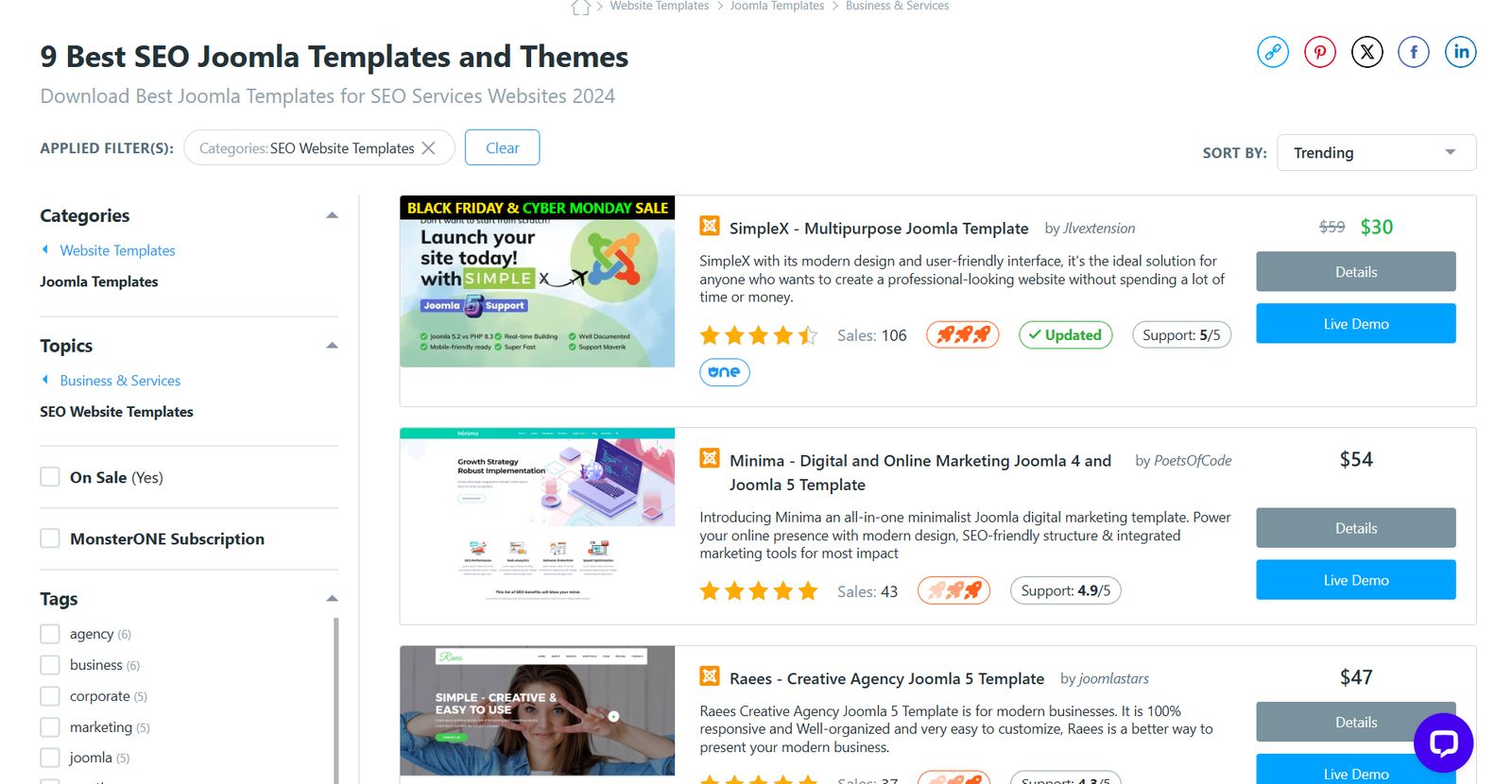Mastering Joomla SEO is essential for enhancing your website’s visibility and improving search engine rankings. This process involves optimizing both the technical and content elements of your site. A key starting point is implementing Search Engine Friendly (SEF) URLs, which creates clean, readable web addresses that benefit both users and search engines.
Effective on-page optimization is crucial. This includes crafting compelling page titles and meta descriptions to attract clicks, strategically incorporating relevant keywords into your content, and optimizing images with descriptive file names and alt tags. The platform’s flexibility is amplified by powerful extensions like sh404SEF and Easy Frontend SEO (EFSEO), which simplify advanced URL and metadata management directly from the front end.
Technical performance is a major ranking factor. Employing responsive, lightweight themes ensures mobile-friendliness and contributes to faster loading times, directly impacting user experience and SEO. Joomla’s built-in caching system and compatibility with Content Delivery Networks (CDNs) further boost site speed.
Beyond the basics, Joomla offers robust blogging tools for regular content updates, strong community support for troubleshooting, and a range of integrations, including analytics and XML sitemap generators. By leveraging these built-in features and dedicated extensions, you can execute a comprehensive and effective SEO strategy to sustainably improve your site’s search presence.
Key Takeaways
- Using SEO best practices in Joomla helps your website get noticed and rank better in search results. You can use easy extensions like sh404SEF and Easy Frontend SEO to manage metadata and improve URLs.
- Choose responsive and fast themes to increase site speed and make it mobile-friendly. This greatly helps user experience and SEO.
- Regularly updating and improving content keeps visitors interested and helps your site show up in searches.
- Connecting with the Joomla community offers great support and resources to learn SEO strategies and solve problems.
What is Joomla SEO?
Joomla SEO means making a Joomla website better to help it show up more in search engine results.
Joomla SEO is not just about using keywords.
It involves making a site that is easy for visitors and search engines to use.
To begin, pay attention to the layout of your website.
A simple menu and clear navigation help both users and search engines discover your content.
Next, make your content better.
Naturally use the right keywords.
Write interesting titles. Create strong meta descriptions.
Don’t forget to optimize your images.
Use clear file names and alt tags.
Use Joomla’s features that are already there.
Use SEF (Search Engine Friendly) URLs to make clear, descriptive URLs for each page.
Use Joomla’s extensions and plugins that are made for SEO.
These tools can help you automate tasks and give useful insights into how your site is doing.
What Makes Joomla SEO Unique?
Joomla SEO is special because it focuses on users and has strong tools for improving search rankings.
You can customize the SEO settings to fit your needs.
It is easy to handle metadata for every article, which helps increase visibility in search results.
Joomla has a feature that changes URLs to make them easier to read.
This helps with search engines and improves visibility.
A strong community creates tools to enhance SEO performance.
These tools include sitemap generators and schema markup tools.
Features of Joomla SEO
Joomla features include customizable designs and themes, strong integrations and plugins, and options for marketing and blogging.
Joomla keeps site optimization simple.
Its tools help you connect with your target audience effectively.
The platform lets you design your site in a flexible way that is good for SEO.
You can change how your site looks to fit your brand.
Joomla can connect with other tools to help improve SEO.
You can also add plugins to get better results with search engines.
Joomla’s marketing tools help your SEO plan.
You can make content that draws in and interests visitors.
The blogging tools let you create new, useful content.
This keeps your site up-to-date and boosts its search rankings.
Designs and Themes
Pick a theme that works well on all devices.
This helps your website look good everywhere.
A theme with extra features can slow down your site and hurt SEO.
Lightweight themes improve user experience and search engine rankings.
Make sure your theme follows SEO best practices.
It should have clean code and a good structure for headings.
Joomla’s template override feature lets you change your theme without losing your customizations when updates happen.
This way, you can keep your site’s design and make sure it stays friendly for search engines.
Integrations and Plugins with Joomla SEO
The best integrations and plugins for Joomla SEO include sh404SEF, Easy Frontend SEO, Google Analytics, and XML Sitemap plugins.
Sh404SEF helps create URLs that search engines like.
It also manages data details and tracks 404 errors.
Easy Frontend SEO (EFSEO) allows you to change SEO metadata directly from the front end of your site.
This simple method helps you improve your SEO without needing to go into the backend.
Google Analytics links your Joomla site to Google Analytics.
This gives you helpful information about what visitors do, where traffic comes from, and how many people convert.
XML Sitemap plugins create sitemaps on their own.
This helps search engines find and read your content easily.
Marketing Features for Joomla SEO
Joomla allows you to create custom URLs and manage metadata.
You can also integrate social media and use responsive design.
Plus, there are built-in analytics tools to track your site’s performance.
The platform interface helps you manage content and make changes for SEO without needing any technical skills.
You can also create custom URLs for your articles.
Joomla lets you manage metadata easily.
You can put titles, descriptions, and keywords on every page.
The built-in social media feature helps you share your content easily.
This brings more visitors from different sources.
Joomla can create designs that work well on mobile devices.
This is very important because more and more people are using their phones to browse the web.
You will find the built-in analytics tools useful.
They watch how visitors act.
SEO Features for Joomla SEO
First, it helps create URLs that are friendly for search engines.
This makes your links easier to read and more appealing to search engines.
You can easily change these URLs for each article, which can boost your chances of ranking higher.
Another strong point is the management of metadata.
Joomla lets you add title tags, meta descriptions, and keywords for each page.
This gives you the ability to decide how search engines see your content.
It also has a strong category and tagging system.
This helps you organize your content well.
Joomla has a built-in caching system that makes your site run faster.
This is very important for SEO.
It is also compatible with several SEO extensions.
These extensions provide better analytics and tools for optimization.
Joomla SEO: Blogging Options
Joomla has an easy-to-use interface that lets you create, manage, and publish blog posts with no trouble.
Joomla has SEO tools that help you improve each blog post for search engines.
You can change meta descriptions, titles, and keywords.
The platform allows for clear URL structures.
This makes links more attractive and easier for search engines to read.
The way Joomla organizes blog posts makes it easy to find what you’re looking for.
This helps users navigate better and it also improves your site’s SEO.
You can also add social sharing features.
These allow readers to share your content on different platforms.
Joomla has many extensions to improve blogging.
These include image galleries and comment systems.
They keep your audience engaged and boost your online presence.
Security
Joomla has several tools that help protect your site from problems that might hurt your search rankings.
Keep your Joomla and all extensions updated.
Regular updates fix security issues and boost performance.
Use strong passwords and turn on two-factor authentication for admin accounts.
This adds extra safety against unauthorized entries.
Make good use of Joomla’s user control levels to manage what users can do.
Limiting access to important parts of your site helps reduce the chance of harmful actions.
Consider using security tools that watch your site for unusual behaviour and offer regular backups.
Make sure you have an SSL certificate.
This keeps your data safe and helps improve your SEO ranking.
Search engines prefer websites that use HTTPS.
Speed
First, you can enable caching. This stores fixed versions of your pages and helps reduce load times a lot.
Be sure to set your cache settings correctly, as this can give you quick performance improvements.
Next, think about improving your images.
Big images can make your site slow.
Using tools to make them smaller without losing quality is important.
Joomla has add-ons to help with this.
They make sure your pictures look good and load fast.
Also, use content delivery networks (CDNs).
A CDN shares your site’s content across many servers around the world.
This helps users get the content from a closer location.
Pricing and Value
When looking at Joomla’s SEO features, think about their benefits over time.
You can customize metadata, use advanced SEO settings, and manage content easily.
This can help you work better and improve your site’s rankings.
Some extensions might be more expensive at first.
However, they usually give better results and save time later.
Think about the possible return on investment, too.
A well-made website attracts more visitors.
This can lead to higher revenue.
Support
With Joomla, you will find a lively community willing to help you with any SEO problems.
Whether you have technical issues or need tips on best practices, you can trust the forums, documentation, and tutorials.
Additionally, Joomla lets you connect with skilled developers and SEO experts.
They can help you with personal support.
You can easily reach out to these professionals on different platforms.
Plus, many third-party add-ons are available.
They often have their support teams, so you can improve your site’s features without worry.
Call to Schedule a Free Consultation
We give you a chance to discover your goals and dreams.
Our experts will help you with each step of the process.
Don’t let doubt stop you. Take action today. Your future self will appreciate it.
Call 085 880 2213 to book your free consultation and start your path to reaching your goals.
Are you set to take charge of search rankings with Joomla SEO?
Yes, understanding Joomla SEO is very important for getting high search rankings.
In the constantly changing digital marketing world, knowing the basics of Joomla SEO helps improve your online presence.
Good search engine rankings take more than just using keywords.
You need to produce valuable content that engages with your audience.
Start by improving the structure of your site.
Use simple URLs and correct headings.
Then, focus on good content.
Update your website often with helpful articles, blogs, or resources.
Don’t forget about meta tags.
Write clear title tags and meta descriptions that show what your content is really about.
Also, use Joomla’s SEO tools.
They have friendly URLs and XML sitemaps.














